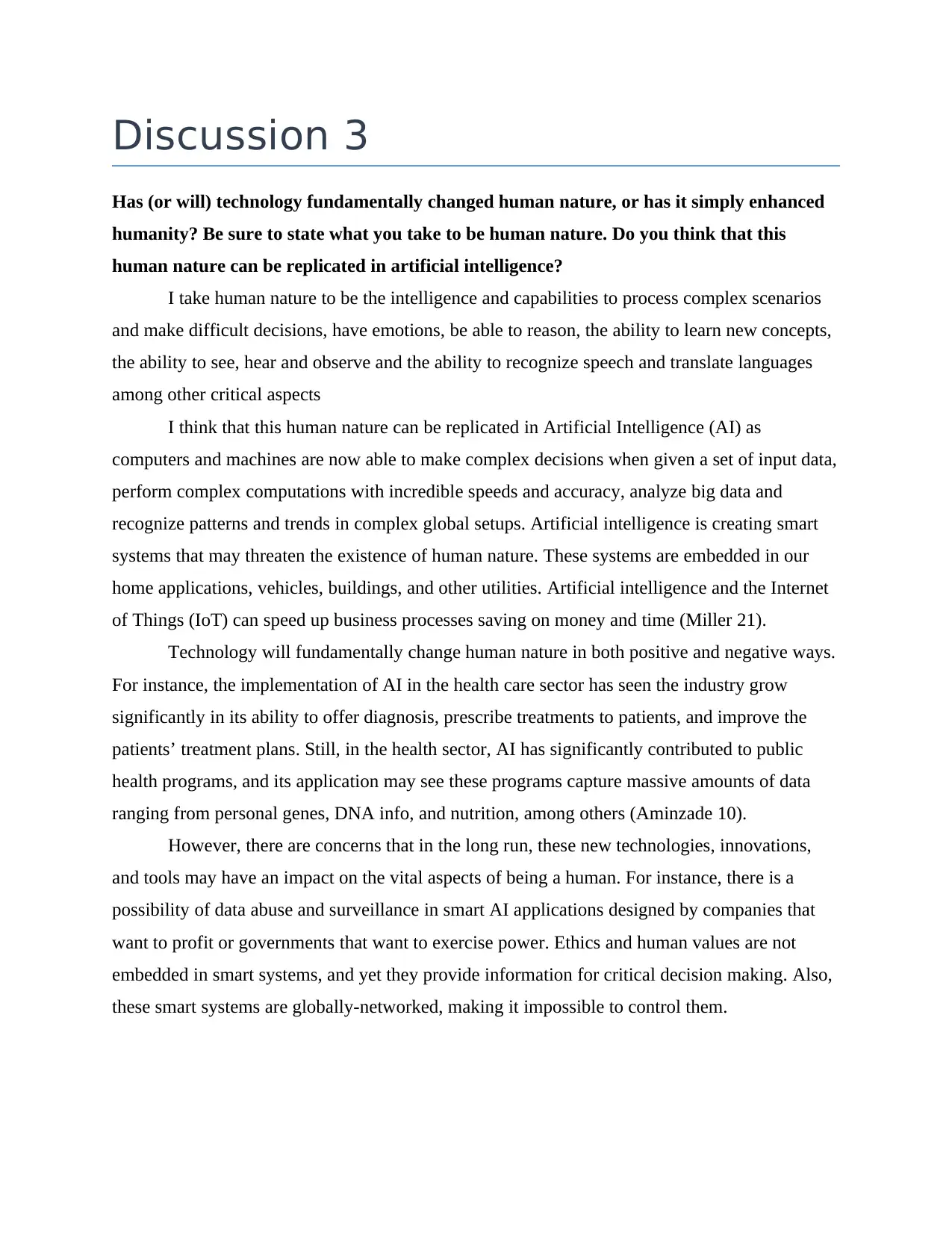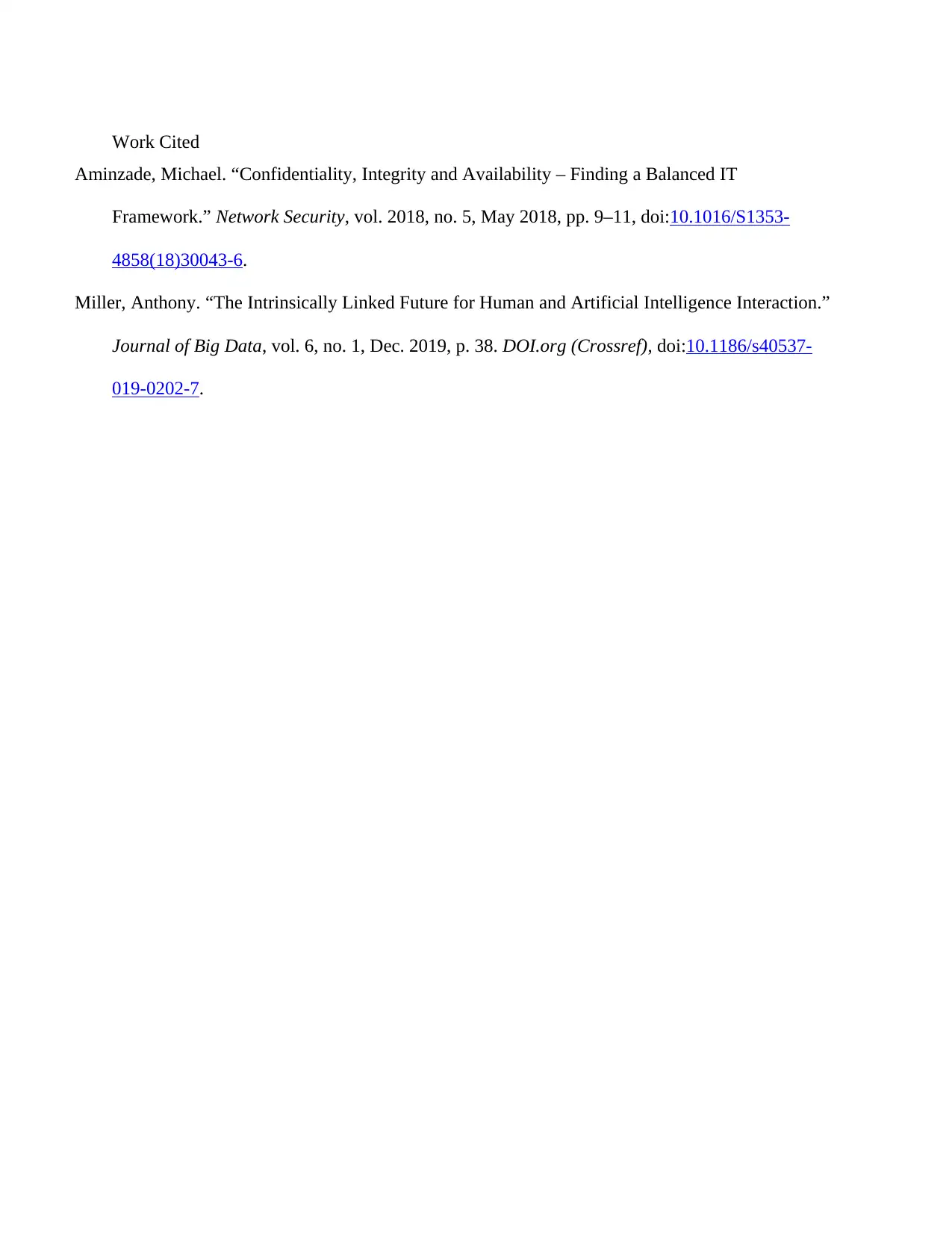Discussion: Artificial Intelligence, Human Nature, and Technology
VerifiedAdded on 2022/09/13
|2
|495
|22
Discussion Board Post
AI Summary
This discussion post delves into the complex relationship between technology, particularly artificial intelligence (AI), and human nature. The author defines human nature as encompassing intelligence, complex decision-making capabilities, emotions, reasoning, learning, and sensory perception, arguing that AI can potentially replicate these aspects. The post examines how AI, through its ability to process data, make decisions, and analyze trends, is creating smart systems that are integrated into various aspects of life, potentially changing human nature. It explores both the positive and negative implications of AI, such as advancements in healthcare and concerns about data abuse and ethical considerations. The author cites sources that discuss the evolution of AI and its impact on business processes, healthcare, and public health, highlighting the importance of addressing ethical concerns and the potential for AI to fundamentally alter human experiences.
1 out of 2







![[object Object]](/_next/static/media/star-bottom.7253800d.svg)